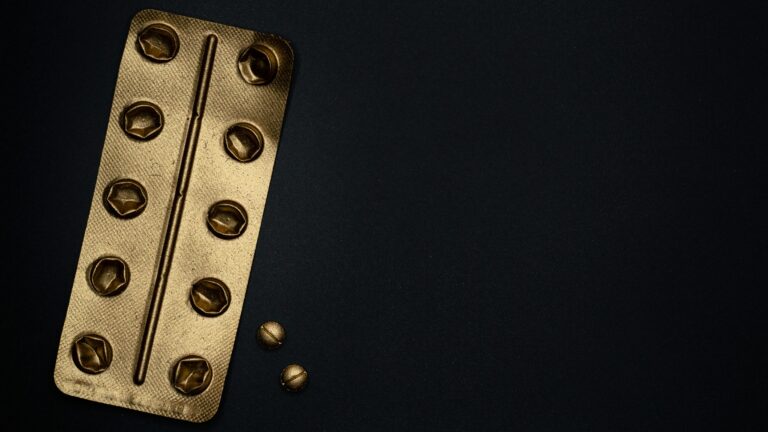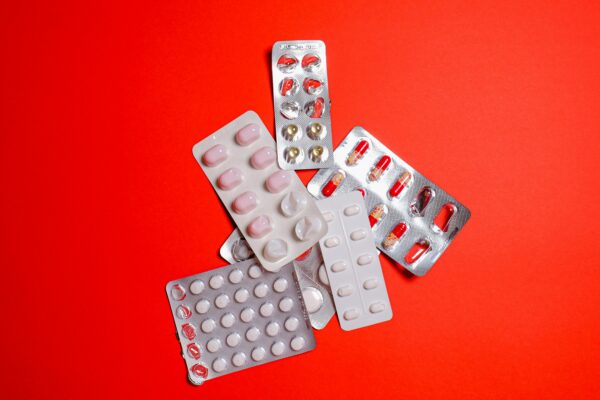Fluoxetine, a widely prescribed antidepressant, has helped millions manage conditions like depression, anxiety, and obsessive-compulsive disorder (OCD). However, many men have concerns about one particular side effect: erectile dysfunction (ED). If you’re wondering how fluoxetine impacts your sexual health, you’re not alone.
- What is Fluoxetine?
- How Does Fluoxetine Cause Erectile Dysfunction?
- How Common is Erectile Dysfunction with Fluoxetine?
- Can Erectile Dysfunction from Fluoxetine Be Reversed?
- Lifestyle Changes to Combat Fluoxetine-Induced ED
- Talking to Your Doctor About Fluoxetine and ED
- When to Seek Professional Help
- Final Thoughts
- Studies, Sources, and Links
- FAQs: Fluoxetine and Erectile Dysfunction
- Question: Can fluoxetine cause erectile dysfunction?
- Question: How common is erectile dysfunction with fluoxetine?
- Question: Can erectile dysfunction from fluoxetine be reversed?
- Question: Are there alternative medications with fewer sexual side effects?
- Question: Can lifestyle changes help with fluoxetine-induced erectile dysfunction?
What is Fluoxetine?
Fluoxetine, commonly known by the brand name Prozac, belongs to a class of medications called selective serotonin reuptake inhibitors (SSRIs). These drugs work by increasing serotonin levels in the brain, which helps regulate mood, emotions, and behavior. While effective for mental health, SSRIs are often linked to sexual dysfunction, including difficulties with arousal, performance, and satisfaction.
How Does Fluoxetine Cause Erectile Dysfunction?
SSRIs, including fluoxetine, influence the brain’s neurotransmitter balance, which can affect sexual function in several ways:
- Reduced Libido: Increased serotonin levels can suppress dopamine, a key player in sexual desire.
- Delayed Ejaculation: Fluoxetine may slow the body’s response, making it harder to reach climax.
- Difficulty Achieving an Erection: Changes in neurotransmitter activity can impact the blood flow to the penis, leading to difficulties with firmness and maintenance.
- Hormonal Imbalances: Some studies suggest SSRIs might lower testosterone levels, further contributing to ED.
How Common is Erectile Dysfunction with Fluoxetine?
Research shows that up to 70% of men taking SSRIs report some form of sexual dysfunction. The severity varies depending on factors such as:
- Dosage: Higher doses increase the likelihood of experiencing side effects.
- Duration of Use: Long-term use can lead to persistent sexual issues.
- Individual Sensitivity: Some men are more prone to experiencing sexual side effects than others.
Can Erectile Dysfunction from Fluoxetine Be Reversed?
The good news is that fluoxetine-induced ED can often be managed or even reversed. Some potential solutions include:
1. Adjusting the Dosage
Lowering the dose under a doctor’s guidance may help reduce sexual side effects while still managing depression symptoms effectively.
2. Switching Medications
Certain antidepressants, like bupropion (Wellbutrin), have fewer sexual side effects compared to fluoxetine. Your healthcare provider can discuss alternative options.
3. Timing Your Medication
Taking fluoxetine at a different time of day may minimize its impact on your sex life.
4. Medication Holidays
Some doctors recommend “drug holidays,” where patients skip doses on specific days to restore sexual function. However, this must only be done with medical supervision.
5. Erectile Dysfunction Medications
Drugs like sildenafil (Viagra) or tadalafil (Cialis) can help counteract fluoxetine’s impact on erections.
6. Natural Supplements
Some natural remedies, such as L-arginine, ginseng, and maca root, may improve erectile function, but it’s crucial to discuss these with your doctor.
7. Psychological Support
Sexual performance anxiety can worsen ED symptoms. Counseling or therapy, especially cognitive-behavioral therapy (CBT), may help address these concerns.
Lifestyle Changes to Combat Fluoxetine-Induced ED
In addition to medical treatments, several lifestyle changes can enhance sexual function while on fluoxetine:
- Exercise Regularly: Improves blood flow and boosts testosterone levels.
- Eat a Healthy Diet: Focus on foods rich in zinc, magnesium, and antioxidants to support sexual health.
- Reduce Stress: Chronic stress exacerbates ED, so consider mindfulness or relaxation techniques.
- Limit Alcohol and Smoking: Both can negatively impact erectile function.
- Get Quality Sleep: Sleep plays a crucial role in hormone regulation and sexual performance.
Talking to Your Doctor About Fluoxetine and ED
Feeling embarrassed about discussing sexual health with your doctor is natural, but it’s essential. Being open about your symptoms can help your healthcare provider suggest personalized solutions. When speaking with your doctor, consider asking:
- “Are there alternative medications with fewer sexual side effects?”
- “What lifestyle changes can I make to improve my symptoms?”
- “Is there a way to balance mental health treatment with sexual well-being?”
When to Seek Professional Help
If your erectile dysfunction persists despite trying different approaches, it’s time to consult a healthcare professional. Persistent ED could indicate underlying health issues such as:
- Low Testosterone Levels
- Cardiovascular Disease
- Diabetes or Obesity
Addressing these conditions alongside your mental health treatment can provide comprehensive well-being.
Final Thoughts
While fluoxetine is an effective tool for managing depression and anxiety, its impact on sexual health can be frustrating. The good news is that you don’t have to choose between your mental well-being and a fulfilling sex life. With the right combination of medical interventions, lifestyle changes, and open communication with your healthcare provider, you can regain control and confidence in your intimate life.
Studies, Sources, and Links
- National Institutes of Health (NIH) – SSRI-Induced Sexual Dysfunction
- Harvard Health Publishing – Antidepressants and Sexual Side Effects
- American Urological Association – Erectile Dysfunction and Antidepressants
- Mayo Clinic – Fluoxetine Side Effects
FAQs: Fluoxetine and Erectile Dysfunction
Question: Can fluoxetine cause erectile dysfunction?
Yes, fluoxetine, like other SSRIs, can contribute to erectile dysfunction by altering neurotransmitter activity in the brain, which can affect libido, arousal, and the ability to maintain an erection.
Question: How common is erectile dysfunction with fluoxetine?
Up to 70% of men using SSRIs like fluoxetine report some form of sexual dysfunction, though the severity of erectile dysfunction varies depending on dosage, duration of use, and individual sensitivity.
Question: Can erectile dysfunction from fluoxetine be reversed?
In most cases, erectile dysfunction caused by fluoxetine is reversible with adjustments in dosage, switching medications, or exploring other treatment options, such as erectile dysfunction medications.
Question: Are there alternative medications with fewer sexual side effects?
Yes, medications like **bupropion (Wellbutrin)** are known to have fewer sexual side effects compared to fluoxetine and may be suitable alternatives for managing depression without negatively impacting sexual health.
Question: Can lifestyle changes help with fluoxetine-induced erectile dysfunction?
Yes, regular exercise, a healthy diet, stress reduction, and limiting alcohol and smoking can improve erectile function and overall sexual health, especially when combined with medical treatments.
This article is for informational purposes only and should not replace professional medical advice. If you’re experiencing persistent ED, consult a qualified healthcare provider.





